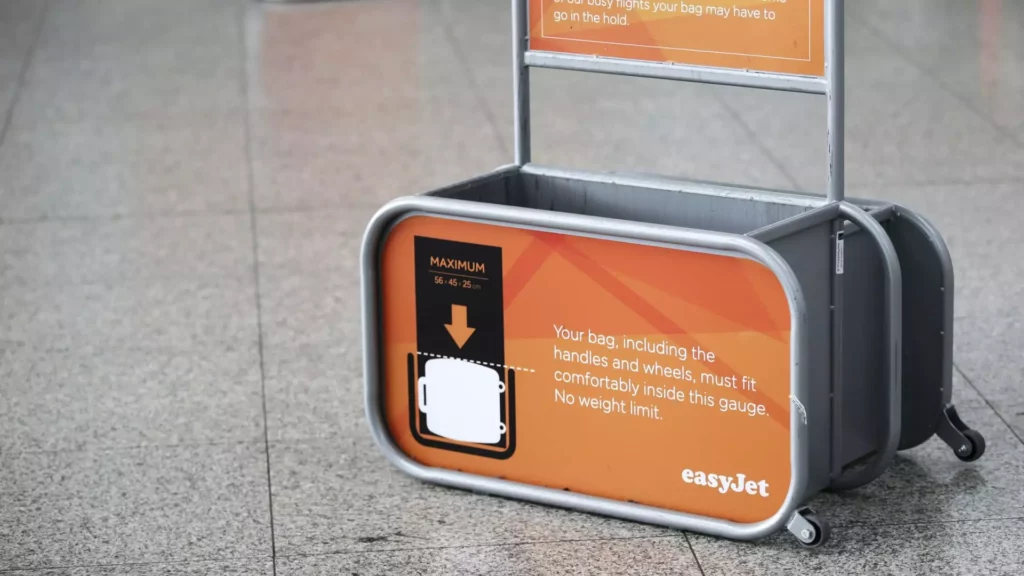In an era where consumer choices dictate market trends, EasyJet has carved a successful niche in the budget airline sector. Recently reporting a staggering £3.59 billion ($4.5 billion) in ancillary revenue for the year ending in October, the airline has become increasingly reliant on add-on charges, such as fees for extra baggage and priority boarding. This development has raised eyebrows, especially given the contentious legal challenges the company faces, including a hefty fine imposed by Spain’s Ministry of Consumer Rights.
The rise of ancillary revenue—money generated from services beyond the base fare—has been a game changer for the airline industry. For EasyJet, this revenue model surged by 22% year-on-year, emphasizing a significant 13% rise specifically from its airline segment, which hit an all-time high of £2.46 billion. This strategic pivot not only demonstrates EasyJet’s ability to adapt but also highlights a broader trend among low-cost carriers. Airlines are increasingly deconstructing their fare structures, offering deceptively low ticket prices to capture a price-sensitive market, while monetizing every optional service.
By implementing this model, budget airlines effectively cater to diverse consumer preferences—tackling the needs of those who prioritize low fares against those willing to pay a little extra for convenience or comfort. However, this approach does not come without its challenges and criticisms.
The recent fine of €29 million levied against EasyJet has drawn significant attention and sparked a heated debate about ethical pricing strategies. The Spanish Ministry accused several low-cost airlines, including EasyJet, of “abusive practices” related to charges for hand luggage and seat selection—services many argue should be included in the ticket price. This has been met with stern rebuttals from EasyJet’s CEO Johan Lundgren, who contends that European law supports offering a range of services to suit varying consumer needs. Lundgren argues that a third of EasyJet’s clientele opts not to purchase any additional services, underlining that the pricing model ultimately benefits those who do opt for extras while enabling lower base fares for budget travelers.
Industry alliances, such as Spain’s Association of Airlines (ALA), have come to the defense of EasyJet and its counterparts, signaling a collective resolve to challenge these fines and protect their business models. Their argument hinges on the claim that transparency is key; consumers often choose to engage with a la carte options according to their preferences.
Comparative Perspectives: EasyJet vs. Ryanair
As EasyJet shines, it is crucial to consider the broader market context. Rivals like Ryanair are also grappling with their own challenges, with the airline recently reporting an 18% drop in half-year profits. While Ryanair has seen increased passenger numbers, the simultaneous decline in fares indicates heightened competition and a more complex consumer landscape. Furthermore, Ryanair’s reliance on Boeing has compounded issues with delivery delays affecting fleet expansion plans, further complicating a competitive interplay within the sector.
Both EasyJet and Ryanair have rebounded from previous losses incurred during the pandemic, showcasing the resilience of budget airlines. However, with EasyJet’s recent financial reporting—including a 34% rise to a pre-tax profit of £610 million—there is a stark contrast in performance strategies that could have implications for future business tactics.
The Future of Budget Airlines: Navigating Challenges Ahead
The evolving landscape of air travel will no doubt present both opportunities and challenges for EasyJet and its competitors. As the demand for air travel continues to soar across Europe, it is pivotal for budget airlines to find the right balance between affordability and service expansions. Consumer preferences, regulatory environments, and competitive pressures will all play significant roles in shaping strategies moving forward.
EasyJet’s recent financial triumphs, juxtaposed with its legal challenges, underscore the complex dynamics within the budget airline industry. As it continues to navigate this volatile landscape, the focus will be on how effectively EasyJet can align its offerings with evolving consumer expectations while advocating for fair practices in a competitive market. The interplay between providing low-cost travel solutions and maintaining ethical pricing will ultimately shape the future trajectory of budget airlines.

